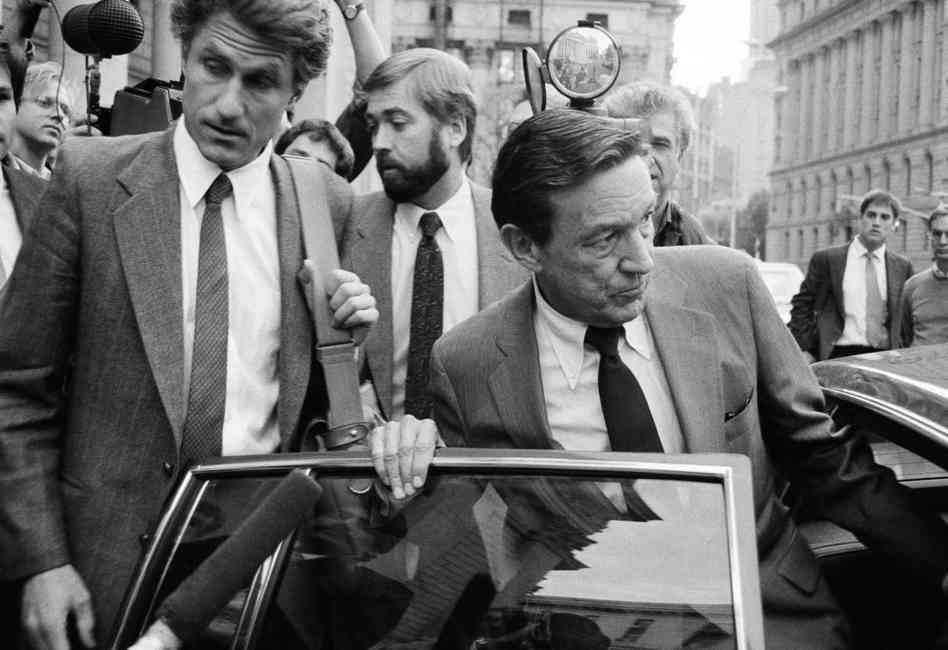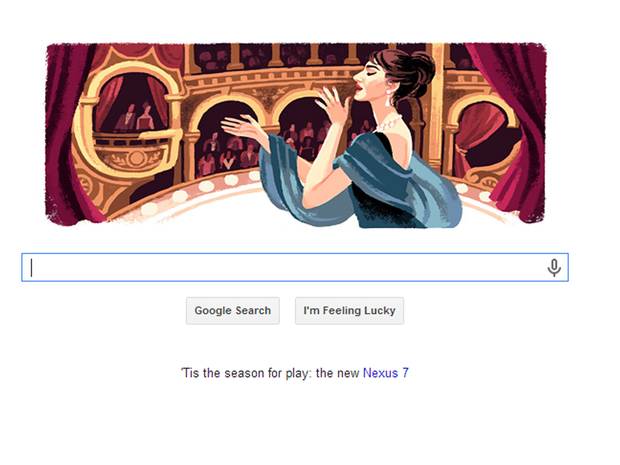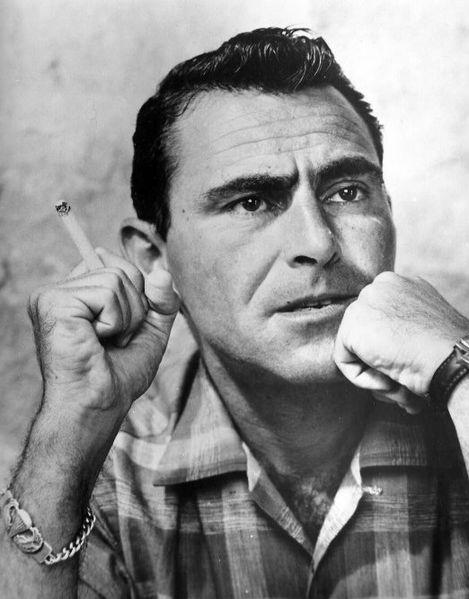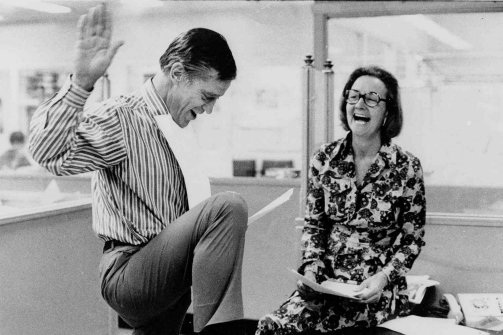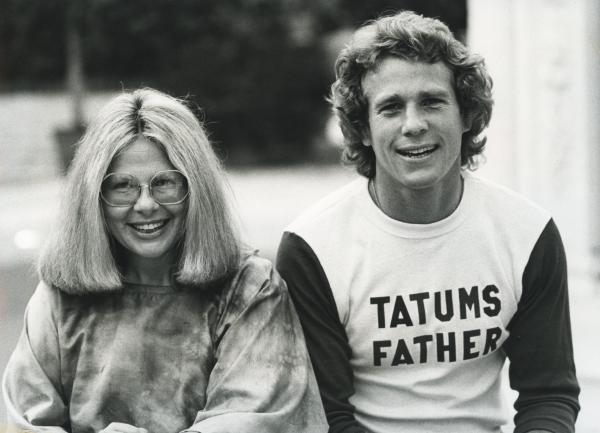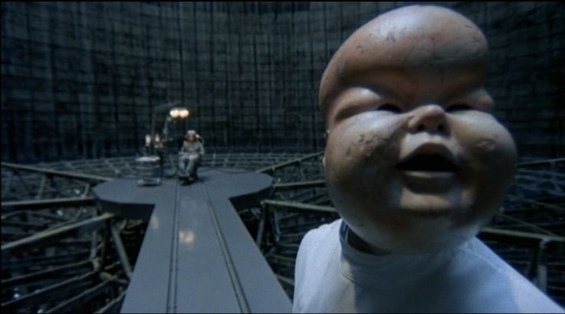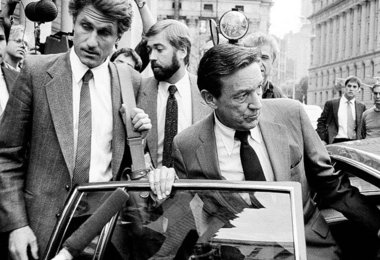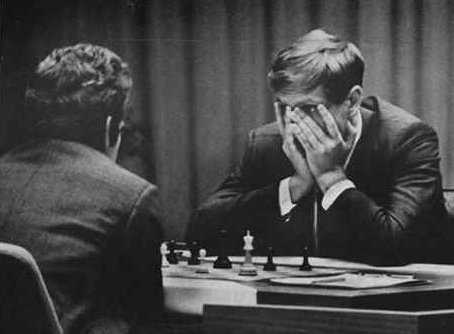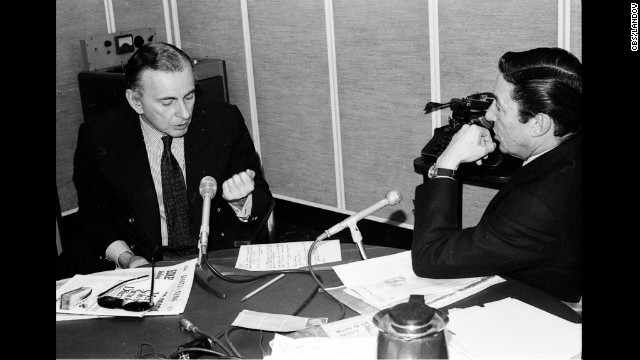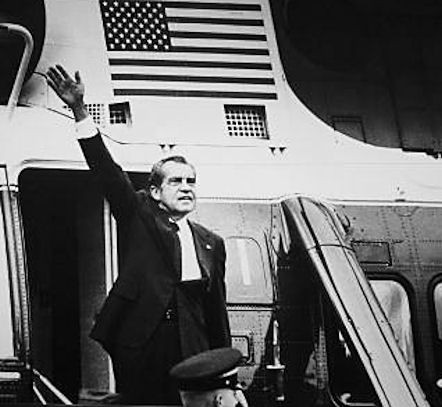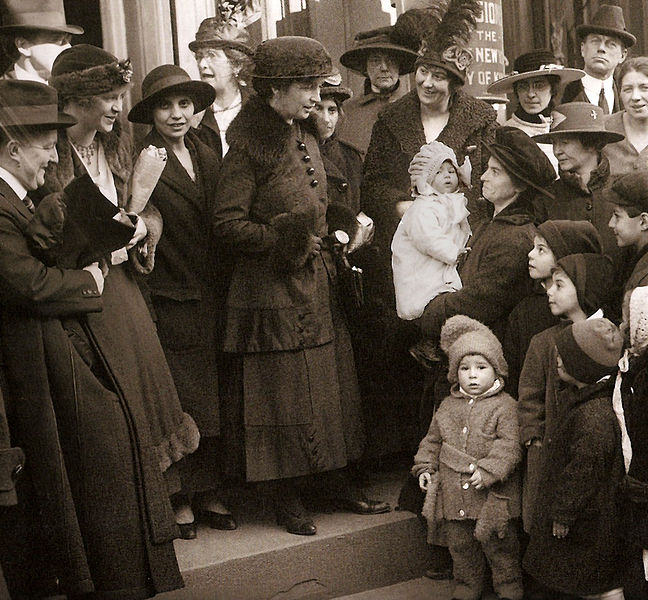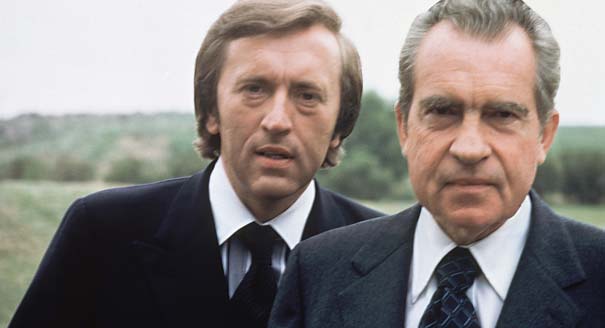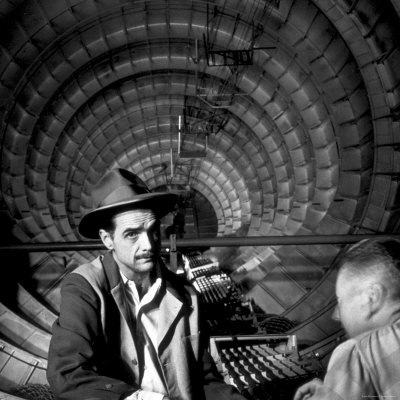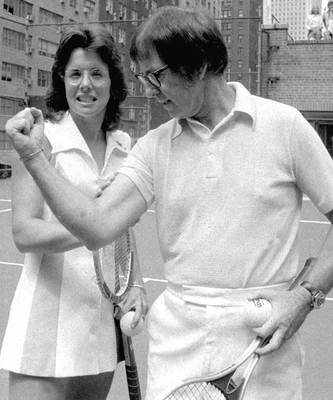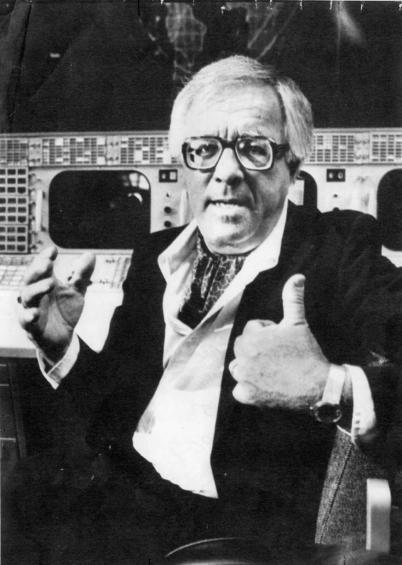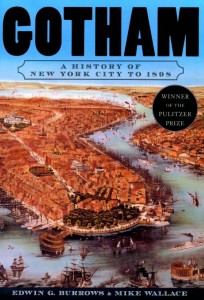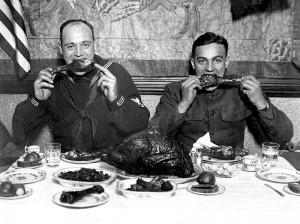An excellent interview by Richard Hefner with Mike Wallace in 1984, when the journalist was at the height of his powers with 60 Minutes snaring fifty million viewers some weeks. What’s unsaid here is that Wallace was also at a personal low, depressed and contemplating suicide as the Westmoreland trial proceeded. The interview begins with a discussion about a Wallace profile of Oriana Fallaci.
You are currently browsing articles tagged Mike Wallace.
Tags: Mike Wallace, Richard Hefner
When he wasn’t playing Pong or chain-smoking himself into an early grave, Rod Serling was crafting paranoid visions that were perfectly if improbably suited for American living rooms. Here he is in 1959 speaking about the outset of his TV opus with Mike Wallace, who was still a decade from reaching his own small-screen apex.
Tags: Mike Wallace, Rod Serling
A 1975 60 Minutes portrait by Mike Wallace of the late Hollywood agent Sue Mengers, which is likewise a portrait of that brief, fascinating era in between the Studio System’s collapse and the rise of the blockbuster. There’s an extended sequence with Robert Evans.
Tags: Mike Wallace, Robert Evans, Sue Mengers
An odd 1981 report from Mike Wallace about rebirthing, a personal growth technique that uses breathing to try to heal the supposed psychological trauma of the birth process. It was the decade that alternative medicines of the previous 15 years–many of them painfully narcissistic–began to receive their own section in even the most mainstream bookstores.
Tags: Mike Wallace
In 1973, Mike Wallace did a 60 Minutes report on the tabloidization of local TV news, focusing on a highly rated San Francisco station that sold happy talk, sensationalism, stunt journalism and lurid sex. Much of the culture drifted in that same general direction, even Wallace and 60 Minutes sometimes. Democracy guarantees the freedom to be great, but not greatness.
Tags: Mike Wallace
I’m of two minds about Stephen L. Carter’s arguments in his new Bloomberg essay, “How Bobby Fischer (Briefly) Changed America.” Carter recalls the Fischer-Spassky chess matches of 1972, which became a national sensation, as the last time Americans were interested in complex ideas. There are by far more U.S. citizens right now than ever before who are interested in and capable of complicated thinking, though there are probably many more focused on the basic function of tools rather than challenging content they can deliver. The piece’s opening:
“This summer marks the anniversary of an extraordinary moment in U.S. history: the 1972 match in which the American genius Bobby Fischer defeated the Soviet wizard Boris Spassky for the chess championship of the world.
The battle probably should have been just one more headline in an eventful three months that saw the Watergate burglary, the expulsion of the Soviet military from Egypt and the humiliating dismissal of vice presidential nominee Thomas Eagleton from the Democratic ticket. Somehow the story of Fischer and Spassky and their epic match, which ended 40 years ago this month, captured our attention in a way that no struggle of intellect has since.
The two best players in the world were playing 24 games in Iceland, and everyone paid attention. Strangers who had never picked up a chess piece discussed the match on subway trains. Newspapers put out special editions announcing the results of the games, and vendors hawked them from the corners, shouting out the name of the winner. Book publishers were signing up chess writers by the dozens.
Chess is a very hard game, and what is most remarkable about that summer is that people wanted to play anyway. They wanted their minds stretched, and were willing to work for that reward. The brief period of Fischer’s ascendancy — he quit chess three years later — was perhaps the last era in our nation’s history when this could be said.”
••••••••••
Mike Wallace’s excellent profile of Fischer in 1972, just prior to the showdown with Spassky. Lewis Cohen, the 12-year-old prodigy who loses a game of speed chess to Fischer, may be this guy.
Tags: Bobby Fischer, Boris Spassky, Lewis H. Cohen, Mike Wallace, Stephen L. Carter
Like a lot of super-intelligent, self-satisfied people, Gore Vidal could never shut the fuck up and was often wrong. He was a fascinating character and a master showman, but he seemed to exist mostly to hear his own voice and flatter himself. There was some greatness along the way, but I doubt one word he wrote or uttered will ever effect the world in any meaningful way. I know that’s a high threshold by which to rate a writer, but I think such self-importance demands an important contribution. Yes, I mourn the absence of public intellectuals in America, but that realm had its limitations.
Because CBS is still living in the distant technological past, I’m unable to embed the video of Mike Wallace conducting a 1975 60 Minutes interview with Vidal, whom he astutely described as an “intellectual vaudevillian.” But go here to watch it.
••••••••••
See also:
Tags: Gore Vidal, Mike Wallace
John Cook and Hamilton Nolan are consistently good reads at Gawker. The former can sometimes be extreme–his takedown of Mike Wallace went too far, I think–but even in his excess a lot can be learned. Here’s the opening of Cook’s reconsideration of those Watergate wonders Woodward and Bernstein:
“Bob Woodward and Carl Bernstein’s investigation into the origins of the Watergate break-in—which took place 40 years ago yesterday—is one of the most highly mythologized episodes in the history of journalism. It represents the Platonic ideal of what journalism-with-a-capital-J ought to be, at least according to its high priesthood—sober, careful young men doggedly following the story wherever it leads and holding power to account, without fear or favor. It was also a sloppy, ethically dubious project the details of which would mortify any of the smug high priests of journalism that flourished in its wake. The actual Watergate investigation could never have survived the legacy it helped create.”
Tags: Bob Woodward, Carl Bernstein, Hamilton Nolan, John Cook, Mike Wallace
Mike Wallace interviewing Thurgood Marshall during the Eisenhower Administration. Choppy video, but certainly worth it.
Tags: Mike Wallace, Thurgood Marshall
Mike Wallace was as good a TV interviewer as there ever was, though some of his work was done for shock value. His passive-aggressive 1979 takedown of Ayatollah Khomeini was one for the ages, but the To Catch a Predator-level of network trash that sprang from his ambush journalism is also part of his legacy. To his credit, Wallace knew he had crossed a line with the candid camera tricks and retreated into what he did best, which was looking into the eyes of other human beings, some of whom had titanic egos, and asking that question.
A legendary non-60 Minutes interview was his exchange with Ray Bradbury the night men landed on the moon:
One of Wallace’s failures was his sanctimonius dismissal of David Frost in 1977, just before the broadcast of the latter’s damning Nixon interviews, an example of checkbook journalism that paid off handsomely:
Tags: David Frost, Mike Wallace, Ray Bradbury
In a report about utter bullshit, Mike Wallace interviews Major Donald Keyhoe about an alleged UFO cover-up, in 1958.
Tags: Donald Keyhoe, Mike Wallace
In the wake of the recent budget-limit travesty, Bill Clinton opined that if President Obama was in a position to be stubborn and let the government close down, perhaps that would have been the GOP’s waterloo moment. Maybe instead the 2012 Presidential election will be the ultimate cratering of the Republicans, the final bottoming out before it can return to sanity and stop treating politics like a zero-sum game. If its Presidential campaign is a culture war and contraception is a centerpiece, the GOP will suffer a devastating loss. Maybe it can rise from that wreckage and become a party worthy of governance again.
The term birth control was coined by New York nurse Margaret Sanger, who is pictured above in a classic photo exiting a Brooklyn courthouse on January 8, 1917. She was on trial for opening a birth-control clinic the previous year, and she was guilty as charged. In 1921, Sanger founded the American Birth Control League, which eventually became Planned Parenthood. Sanger wasn’t completely enlightened herself, embodying some of the biased views of her time regarding race and eugenics. But she did shine a light on the important area of women’s health. From a 1957 interview which Mike Wallace conducted with Sanger:
“WALLACE: Well let’s look at the official Catholic position…opposition to Birth-Control. I read now from a church publication called ‘The Question Box’ in forbidding Birth Control it says the following: It says the immediate purpose and primary end of marriage is the begetting of children, when the marital relation is so used as to render the fulfillment of its purposes impossible–that is by Birth Control–it is used unethically and unnaturally. Now what’s wrong with that position?
SANGER: Well, it’s very wrong, it’s not normal it’s — it has the wrong attitude towards marriage, toward love, toward the relationships between men and women.
WALLACE: Well the natural law they say is that first of all the primary function of sex in marriage is to beget children. Do you disagree with that?
SANGER: I disagree with that a hundred percent.
WALLACE: Your feeling is what then?
SANGER: My feeling is that love and attraction between men and women, in many cases the very finest relationship has nothing to do with bearing a child. It’s secondary. Many, many times and we know that –you see your birth rates and you can talk to people who have very happy marriages and they’re not having babies every year.”
Tags: Margaret Sanger, Mike Wallace
A week before the epic Frost-Nixon interviews were broadcast, David Frost speaks to Mike Wallace on 60 Minutes. Wallace didn’t think Frost had a prayer.
Tags: David Frost, Mike Wallace, Richard M. Nixon
After briefly making love to a pack of Parliaments, Mike Wallace interviews Salvador Dali, 1958.
Tags: Mike Wallace, Salvador Dali
In 1972, Clifford Irving wrote an “authorized” biography of Howard Hughes, claiming he had the cooperation of the ultra-reclusive figure. The book turned out to be an elaborate hoax.
Tags: Clifford Irving, Mike Wallace
Mike Wallace interviews Bette Davis. Just listen to that irritating old witch. And Davis was no bargain, either.
Tags: Bette Davis, Mike Wallace
Mike Wallace predicts the Internet (albeit, via cable TV) in 1970.
Tags: Mike Wallace
Bobby Riggs, that huckster, profiled by Mike Wallace in 1973 for 60 Minutes prior to facing Billie Jean King in the Battle of the Sexes.
King and Riggs shill together for Sunbeam’s Mist-Stick Curler Dryer:
Tags: Bille Jean King, Bobby Riggs, Mike Wallace
Ray Bradbury interviewed by Mike Wallace on the night of the first moon landing. He was ebullient, of course, but probably somewhat more restrained than Arthur C. Clarke and Robert A. Heinlein.
Tags: Mike Wallace, Ray Bradbury
You remember Ayn Rand. She was that novelist who believed a woman should not be President. Mike Wallace interviews her in 1959. (Thanks Open Culture.)
Tags: Ayn Rand, Mike Wallace
An out-of-control New Year’s Eve celebration in New York in 1827, as described in Gotham, by Edwin G. Burrows and Mike Wallace:
“On New Year’s Eve, as the city bade farewell to 1827, several thousand workingmen–laborers, apprentices, butcher boys, chimney sweeps–set out from the Bowery on a raucous march through the darkened downtown streets, drinking, beating drums and tin kettles, shaking rattles, blowing horns. The crowd headed down Pearl Street through the heart of the city’s commercial district, smashing crates and barrels and making what one account described as ‘the most hideous noises.’ From there the marchers wheeled across town to the Battery, where they knocked out the windows of genteel residences and attempted to tear down the iron railing around the park. At two in the morning they tromped up Broadway, just in time to harass revelers leaving a fancy dress-ball at the City Hotel. A contingent of watchmen appeared but, after a tense confrontation, gave way, and ‘the multitude passed noisily and triumphantly up Broadway.'”
Tags: Edwin G. Burrows, Mike Wallace
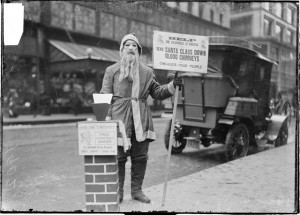
New York gave America Christmas, and Chicago gave us this creepy sidewalk Santa in 1902. He would murder you and your children while you slept. (Image by "Chicago Daily News.")
We know that New York City gave America the Thanksgiving holiday, but it was responsible for Christmas as well. An excerpt from the “1783-1843” section of Edwin G. Burrows and Mike Wallace’s amazing Gotham:
“Wealthy New Yorkers didn’t invent the new cult of domesticity, which was a characteristic of emerging bourgeois culture throughout the Atlantic world. They did, however, give it Christmas–a holiday that became synonymous with genteel family life and a quintessential expression of its central values.
For 150-odd years, probably since the English conquest, the favorite winter holiday of the city’s propertied classes was New Year’s Day (as distinct from the night before, which was the occasion for revelry and mischief among common folk). Families exchanged small gifts, and gentlemen went around the town to call on friends and relations, nibbling cookies and drinking raspberry brandy served by the women of the house. Sadly, according to John Pintard, the city’s physical expansion after 1800 rendered this ‘joyous older fashion’ so impractical that it was rapidly dying out.
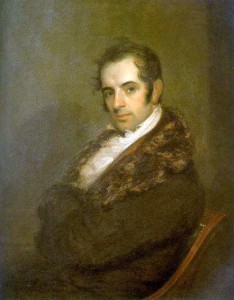
"Washington Irving had identified Nicholas as the patron saint of New Amsterdam, describing him as a jolly old Dutchman, nicknamed Sancte Claus." (Image by John Wesley Jarvis.)
As an alternative, Pintard proposed St. Nicholas Day, December 6, as a family-oriented winter holiday for polite society. In Knickerbocker’s History, Pintard’s good friend Washington Irving had identified Nicholas as the patron saint of New Amsterdam, describing him as a jolly old Dutchman, nicknamed Sancte Claus, who parked his wagon on rooftops and slid down chimneys with gifts for sleeping children on his feast day. It was Salmagundi-style fun, of course; although seventeenth-century Netherlanders had celebrated St. Nicholas Day, the earliest evidence of anyone doing so on Manhattan dates from 1773, when a group of ‘descendants of the ancient Dutch families’ celebrated the sixth of December ‘with great joy and festivity.’ Certainly nothing remotely like the Sancte Claus portrayed by Irving had ever been known on either side of the Atlantic.
Mere details were no obstacle to Pintard. On December 6, 1810–one year to the day after the publication of Irving’s History–he launched his revival of St. Nicholas Day with a grand banquet at City Hall for members of the New-York Historical Society. The first toast was to ‘Sancte Claus, good heylig man!’ and Pintard distributed a specially engraved picture that showed Nicholas with two children (one good, one bad) and two stockings hung by the hearth (one full, one empty)–the point being that December 6 was a kind of Judgement Day for the young, with the saint distributing rewards and punishments as required. St. Nicholas day never quite won the support Pintard wanted, and he eventually ran out of enthusiasm for the project. Sancte Claus, on the other hand, took off like a rocket.”
Tags: Edwin G. Burrows, John Pintard, Mike Wallace, Washington Irving
Thanksgiving as an official holiday was born of an event that occurred in the poorer quarters of New York City in 1850, according to the humongous Burrows and Wallace tome, Gotham. The Ladies’ Home Missionary Society held an event in an infamous slum that would eventually lead to President Abraham Lincoln designating Thanksgiving a national holiday. An excerpt:
“In 1850, backed by wealthy contributors like Daniel Drew and Anson G. Phelps, the LHMS opened a Five Points Mission in a rented room diagonally across from the infamous ‘Old Brewery.’ There, under the leadership of the Rev. Louis M. Pease, the ladies ran prayer meetings and Bible study classes, opened a charity day school, sponsored temperance speakers, and went out to comfort the sick. Closely attuned the virtues of publicity, they issued regular accounts of their work–filled with stories of miraculous conversions and deathbed repentances–and on Thanksgiving Day paraded hundreds of scrubbed Sunday school students before benefactors. Then the ladies fed their charges turkey dinners, inaugurating a ritual that would lead, a decade later, to Thanksgiving’s establishment as an official (and feminized) holiday.”
Tags: Abraham Lincoln, Anson G. Phelps, Daniel Drew, Edwin G. Burrows, Mike Wallace, Rev. Louis M. Pease

